
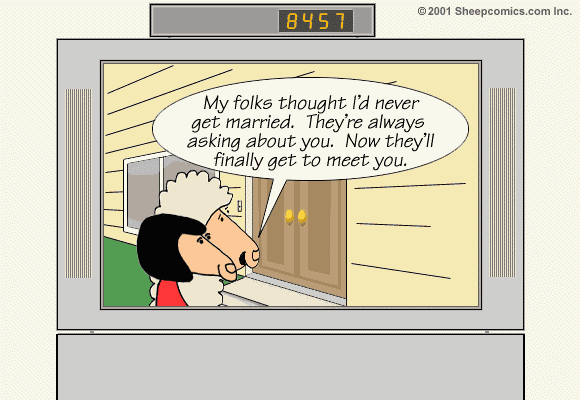



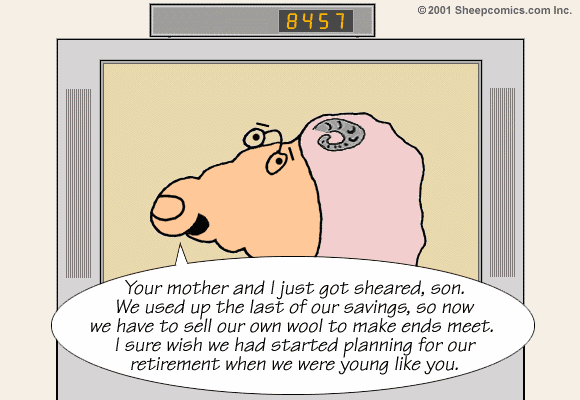

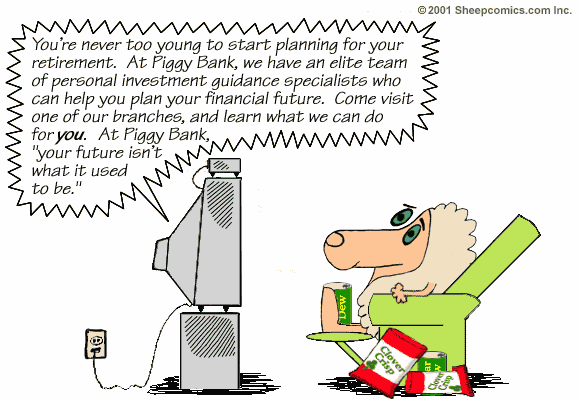
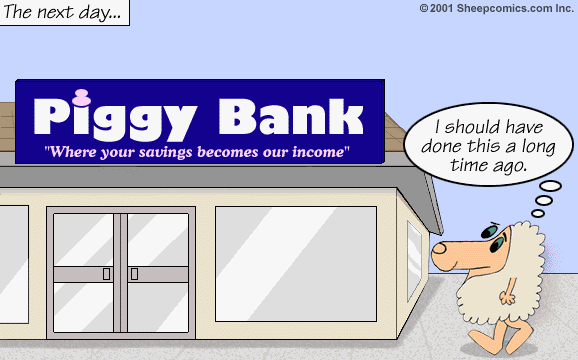
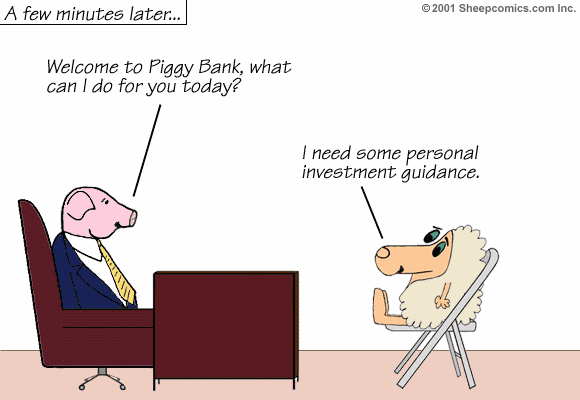
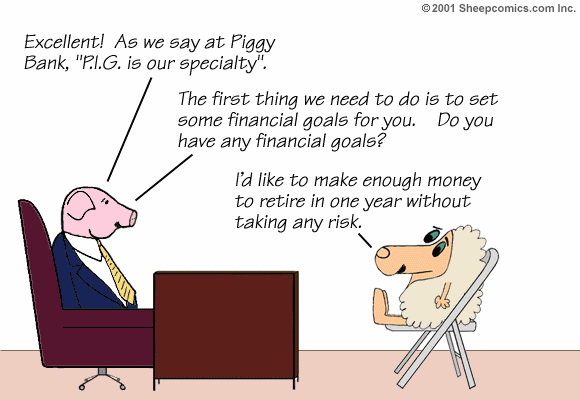
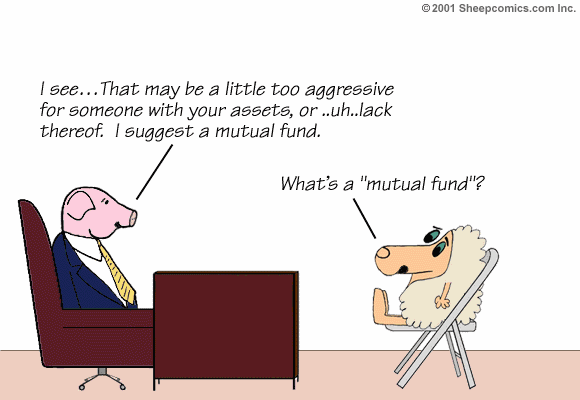
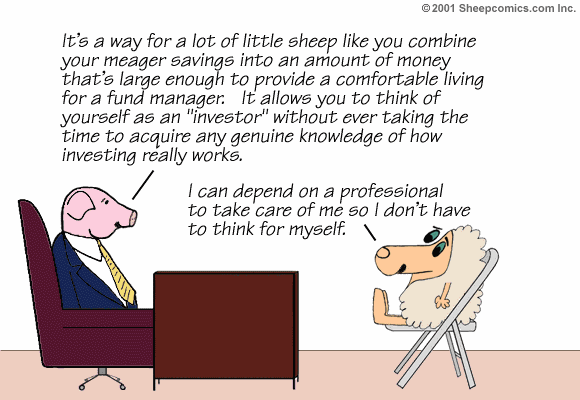

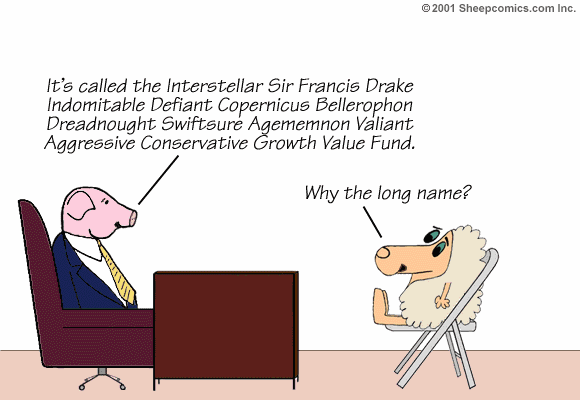
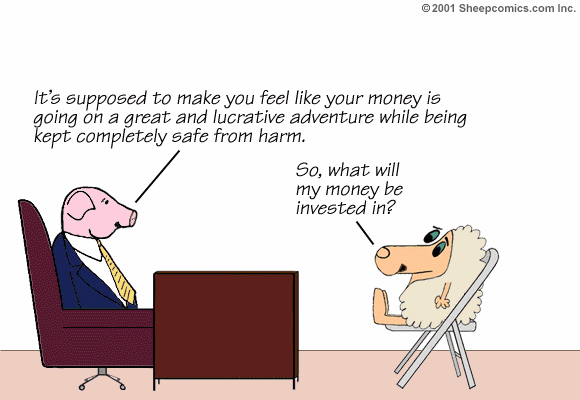
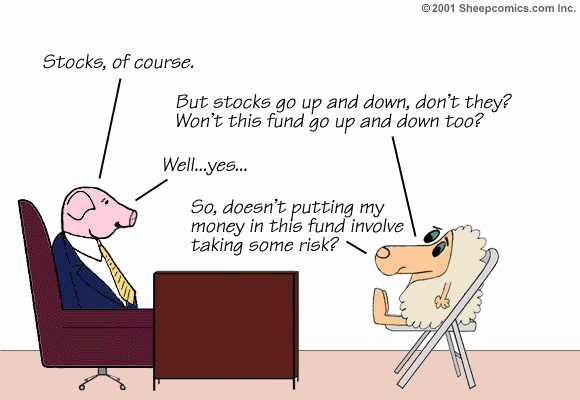
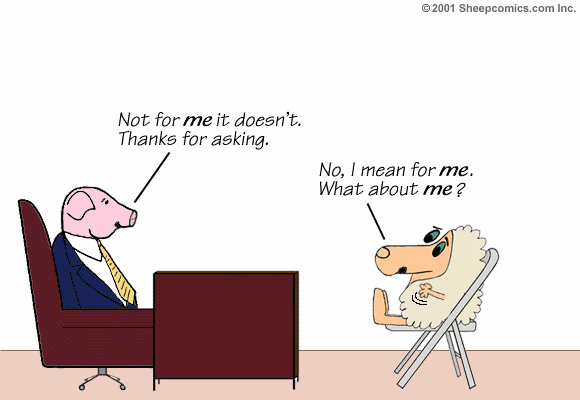
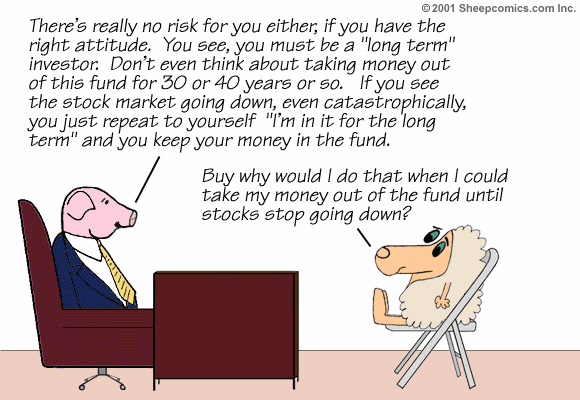
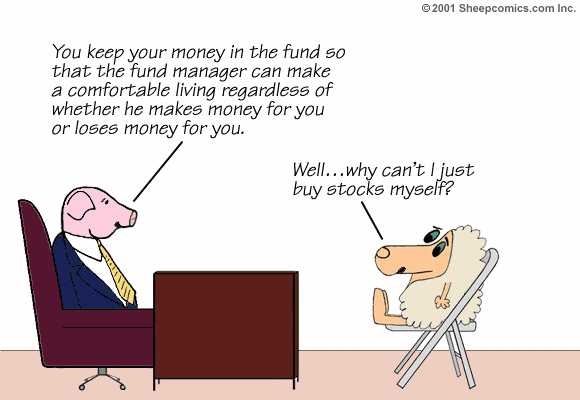
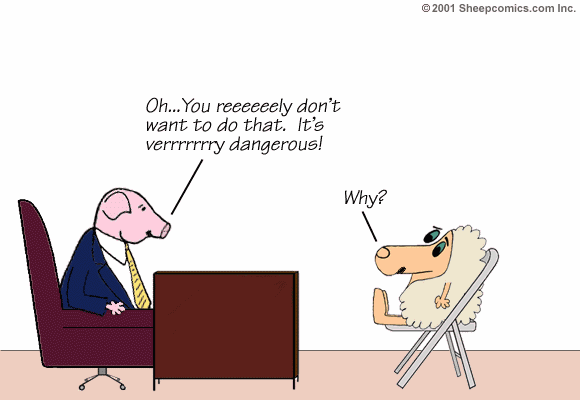
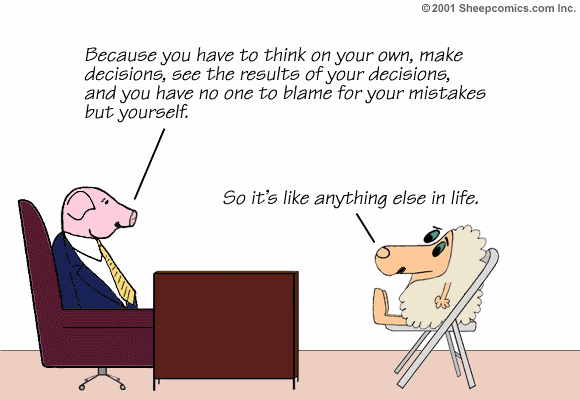
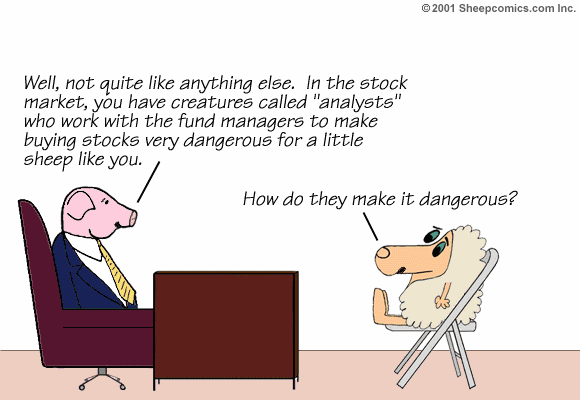
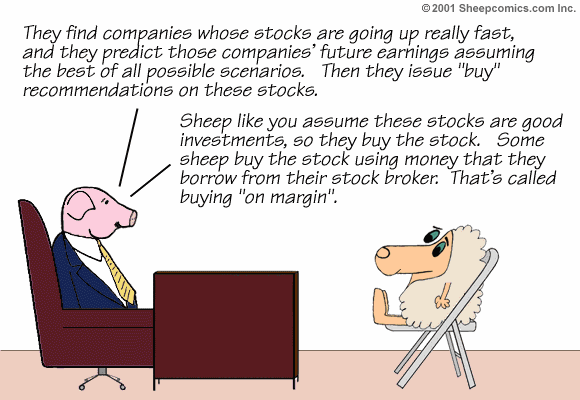
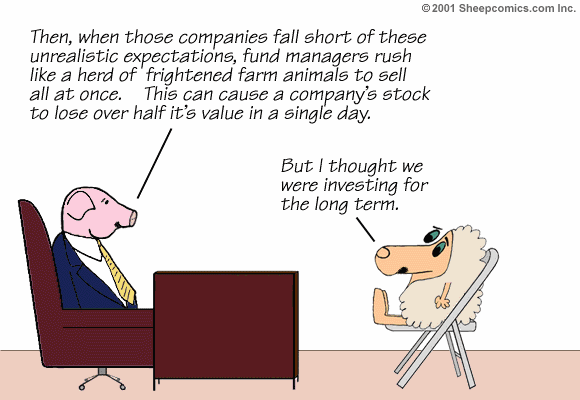
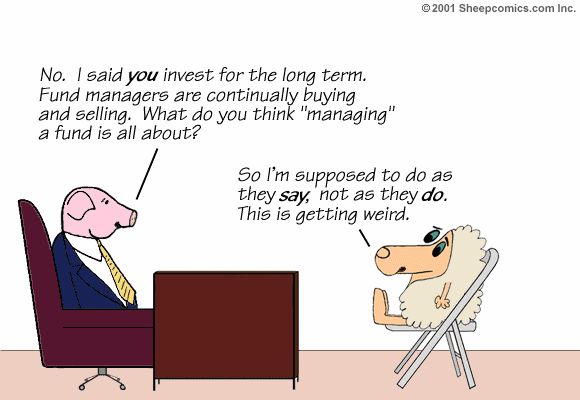
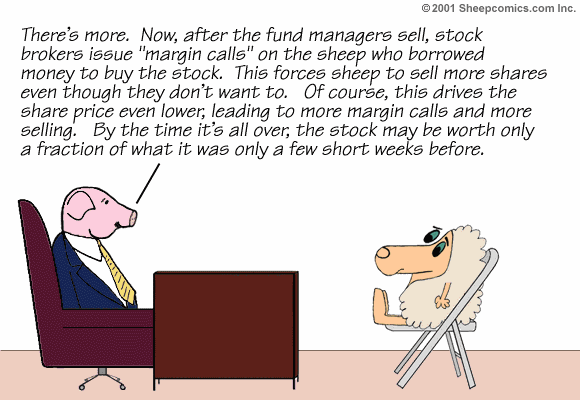
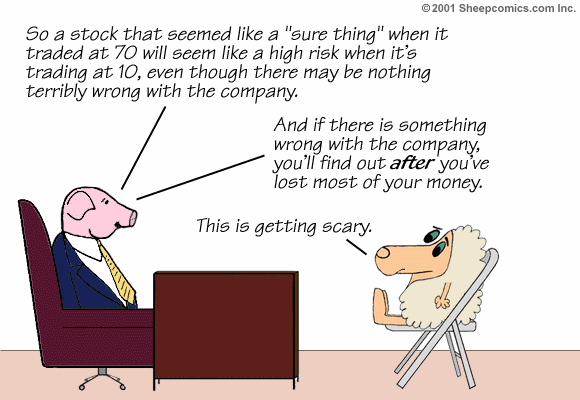
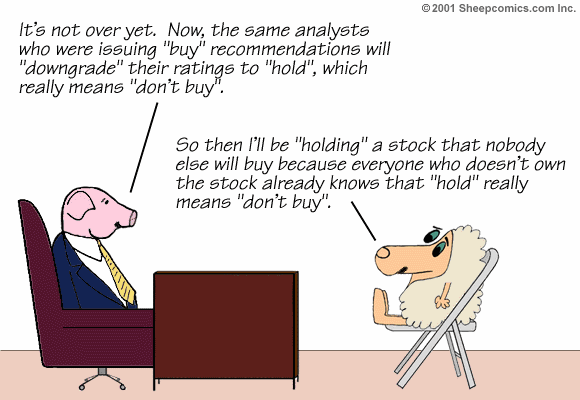
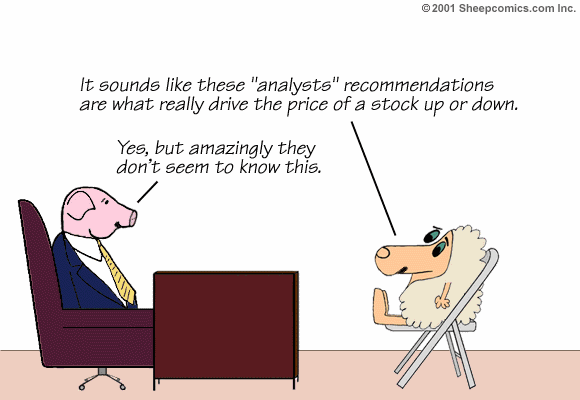
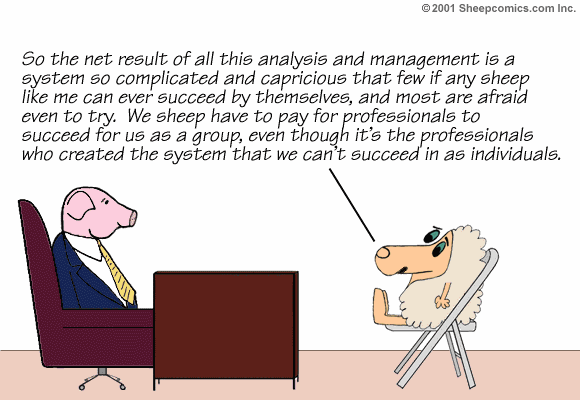
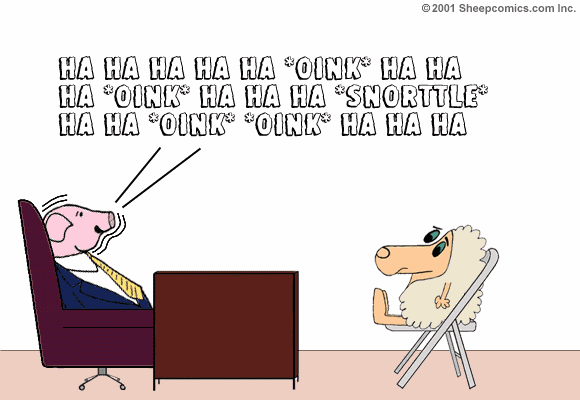
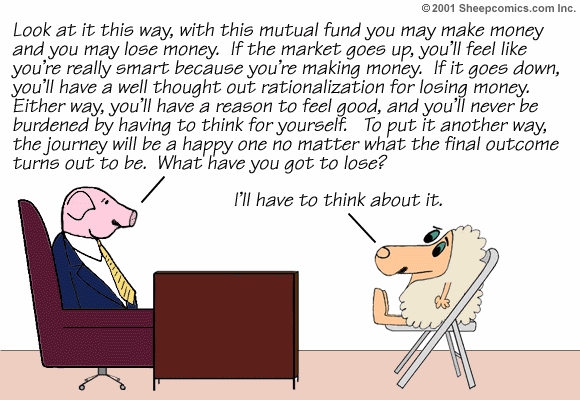
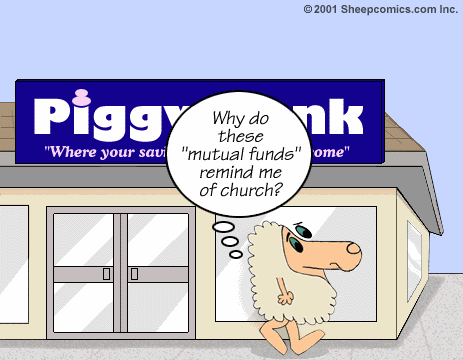
Editorial Notes
During the decade of the 1980ís, I spent an estimated 1200 hours sitting in church services. I remember very little of this over-half-a-year in detail, but there were a few experiences that I have remembered and thought about to this day: experiences that really started me thinking about what this "church business" is all about. This episode is as good a place as any to share one of these experiences with you.
One Sunday evening we had a guest speaker who was some sort of "Christian financial planner" type of person. I also remember he had a lot to do with sales. It really doesnít matter what his profession was, what matters to me is that he was considered worthy to occupy the pulpit during the sacred preaching time on Sunday evening.
He was speaking to us of how a good Christian should allocate his or her financial resources. His financial plan was very simple. First I should pay my bills. Second, I should put some money aside for retirement. Third, give all the rest to the church. He also went out of his way to tell us that a Christian had no business playing the stock market.
This got me to thinking because I had already bought and sold stocks. It had never occurred to me that there was something inherently sinful about calling a broker and buying some shares of stock. I believed that it was sinful to use money recklessly, and we know there are plenty of opportunities to be reckless with money in the stock market. (The year 2000 seemed to provide an unusual number of these opportunities.) I didnít see myself as the reckless type, however, but rather the thoughtful risk taker.
So, my conscience was clear with respect to my stock market dabbling, but what kept me thinking was the sheer arrogance of a visiting "preacher guy" laying claim to all my income outside what I needed to keep a roof over my head and food in my stomach, both now and in my retirement years. The implication was that if I lost money on the stock market, I was really losing money that already belonged to "the church". "The church" could rightfully claim all my income, but was graciously letting me keep enough of it to pay my rent, utilities, food, and retirement fund. "The church" was jealous of whatever surplus I retained beyond that. "The church" wasnít me and my brothers and sisters in the Lord, it was the church corporation and its elite executive leadership, and "the church" wanted everything. When it came to discretionary spending I had two choices: "the church" or sin!
Years have passed since then and Iíve learned a little about the stock market, investing, and what the Bible has to say about giving. Ultimately we are all investors, and we really do have only two choices. But the choices arenít whether to "sin" with our money or give it to "the church". The two investment choices are "this life" or "the next life".
In Luke 16 Jesus tells the parable of the shrewd manager to make the point that we can, and should, use the wealth of this life to prepare for the next. What is our wealth? To some it may be money, to others time or perhaps a certain talent.
Speaking of talents, thereís another parable. In Matthew 25, Jesus tells the parable of the talents to show that the way we invest our resources makes a difference in eternity. Jesus shows us that weíre really not investing anything that wasnít already given to us. The irony to me is that In this parable we are the investments, and some of us will provide more of a "return" to the Lord than others.
Back in Luke 16:13, Jesus makes the point that we canít serve God and mammon, or "money" as some translations say. The financial wizards of this world want me to be continually obsessed over having enough money to retire. Iím reasonably sure that if I spend the rest of my productive life working for my retirement, then my retirement years will be quite comfortable. Buy how "comfortable" would my retirement be knowing that I had spend my life serving "mammon" and that I would have to account to God for this? No matter how well my physical needs are met, that wonít be a very "comfortable" retirement. Looking back on a life that bore fruit for the Lord may actually be the most comfortable retirement of all. Maybe itís worth planning for.
Web Shepherd